Is Real Estate Note Investing Risky?

David Garner
Is Investing in Real Estate Notes Risky?
Appetite for alternative assets is bigger than ever, and there is plenty of choice. But by their very nature, most non-mainstream alternatives to stocks, bond and cash carry a different set of risks. In this article, we look at some of the risks involved in investing in real estate notes.
Notes for Sale: Click Here to Receive Details of Private Real Estate Notes for Sale in Your Inbox Every Week
Contents
Why Invest in Real Estate Notes?
Real Estate notes have always been a very popular with investors of all shapes and sizes. They can be a great way to invest in real estate, without the hassles of direct property ownership. But why are they so popular today, in 2021?
The New Normal Economy
2020 was one hell of a year. As the economy was shut down to stop the spread of Covid-19, millions of jobs were lost, and trillions of dollars were pumped into the economy by the Federal government. As a result, the Fed balance sheet has ballooned by about 700% since 2008.
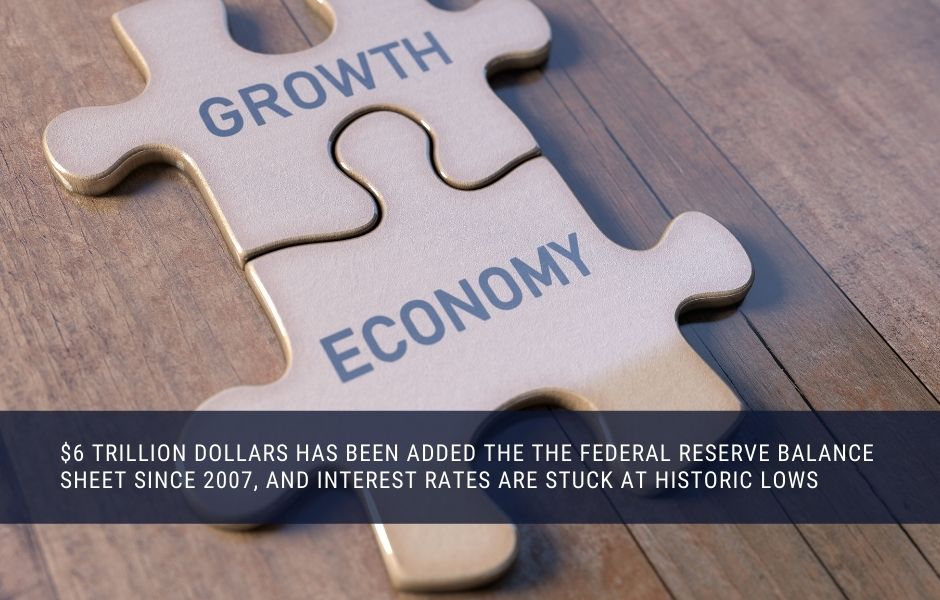
Interest rates are also stuck at historic lows. Any significant rate hike would make this new debt pile of $7 trillion unserviceable, and the US economy would collapse. So, with low interest rates most likely here to stay, the hunt is well and truly on for alternative interest-bearing investments.
A Reliable Alternative
Enter; real estate notes. A highly accessible, relatively liquid, interest-bearing asset that is secured against real, physical assets that tend to appreciate over time. On the face of it, an almost perfect solution to our investing dilemma.
Notes have been a stalwart of well-diversified investment portfolios for years. Insurance companies, hedge funds and smaller private investors alike own real estate notes. Bearing in mind the current economic situation as I mentioned earlier, it is not hard to see why.
Related: Note Investing 101 – Everything you Need to Know About Note Investing
Real Estate Note Investing Risks
The return you receive from any investment is directly proportional to the amount of risk you take. Real estate note investing risk can be broadly categorized into five areas:
Credit Risk – the risk of your borrower defaulting
Collateral Risk – risk associated with the property
Investment Risk – how the terms of the loan might impact your risk
Market Risk – risk associated with the real estate market and general economy
Other Risk Factors – This tends to be investor and/or deal specific, and can include things like opportunity cost, regulatory risk, and currency risk
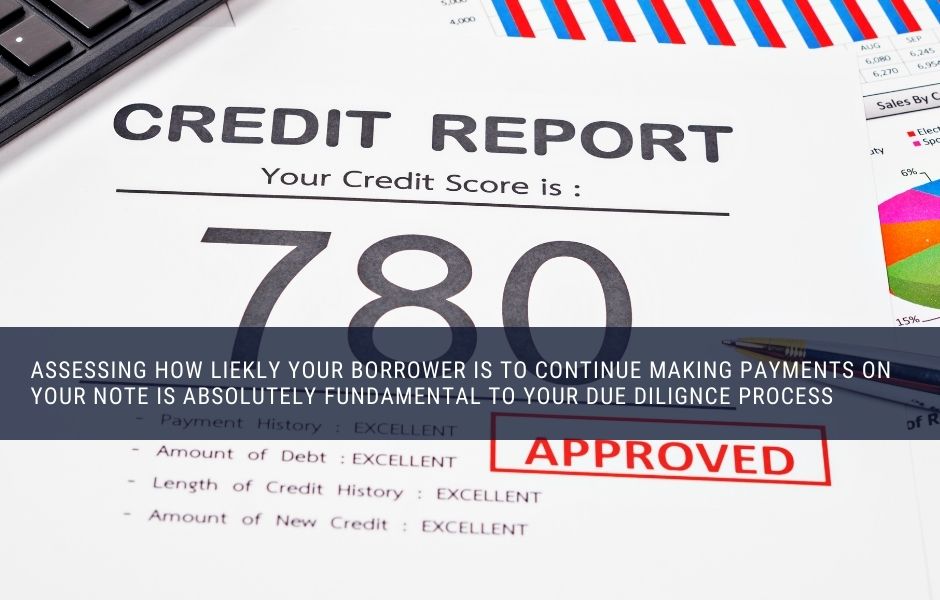
Note investors and private lenders all have their own risk assessment and due diligence processes and tolerances. What one investor deems too risky, another will see as potential for profit.
Credit Risk
This is the risk associated with the borrower on a note. In effect, you must assess the borrower’s capacity and willing to continue making payments on the note. This is not an exact science, and often there will be limited information available pre-investment.
Factors to consider when assessing the credit risk associated with a particular real estate note and borrower include:
- Credit score
- Income
- Property income
Effectively, you want to be confident in the borrower’s ability to manage credit, and the reliability and consistency of their income. For private lending deals where you are originating a note, you may also want to consider cash reserves and net worth.
Every note carries some risk of default, life happens, and people’s circumstances change. You should decide on the level of risk you are prepared to take, and what level of return on investment is satisfactory recompense.
Debt Service Coverage Ratio
In the case of notes secured against investment properties, you should focus on the ability of the property itself to produce enough net operating income to service the debt. This is known as the debt service coverage ratio (DSCR). Simply put, DSCR is amount of net cash flow (after all operating costs) generated by the asset that is available to service payments on the note.
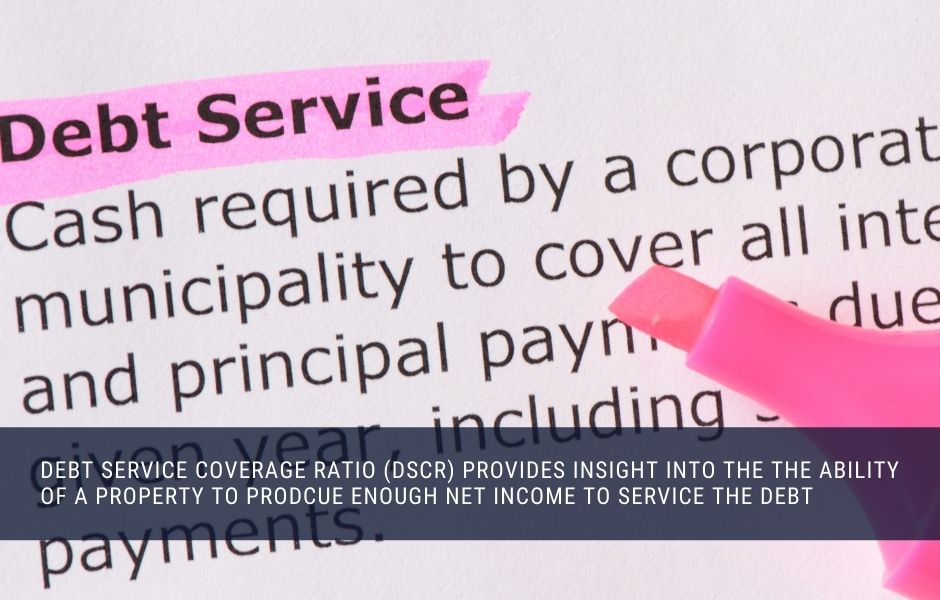
A DSCR of 1 means the property generates exactly enough net cash flow to service loan repayments. Anything higher than 1 represents an excess of cash flow after making the loan repayments. Anything lower than 1 means the property does not produce enough net income to service the debt. Most lenders tend to see a DSCR of 1.2 or higher as relatively safe.
Related: The Complete Guide to Credit Risk for Private Lenders
Collateral Risk
Once you have figured out the risk level of your borrower, you must then look at the capacity of the collateral to repay your entire investment in a worst-case scenario such as a foreclosure.
Ascertaining an accurate current and future value for a specific piece of real estate can be difficult when you are buying a note. If you are buying a house, chances are you will be able to inspect the asset prior to signing or closing. Typically, note investing transactions turn around much faster, and note investors must act quickly to secure a deal, often with limited information available and no opportunity to inspect the collateral.
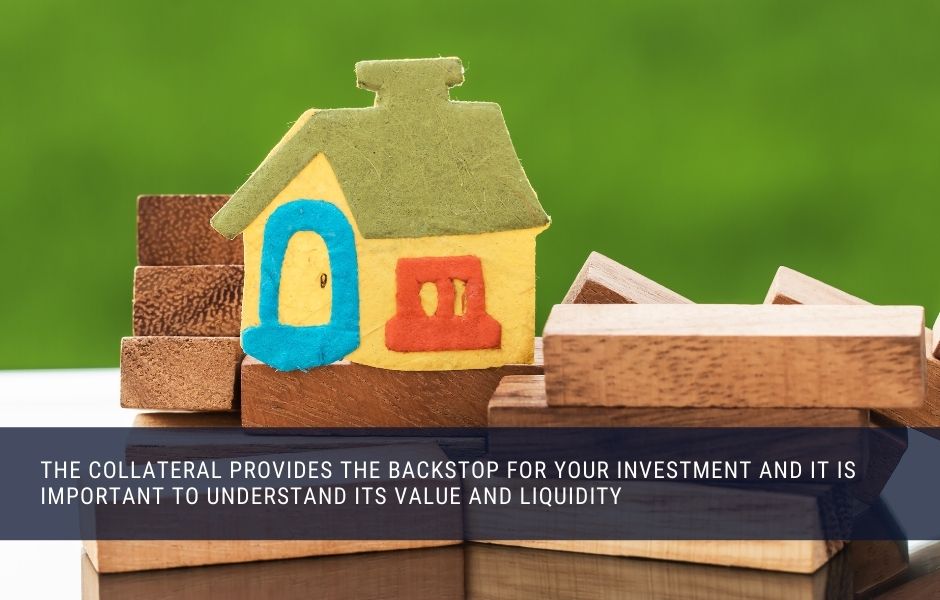
This is one area where private lending has an advantage over investing in existing real estate notes. Typically, you will have more time to investigate the real estate (and the borrower) when originating your own note to a real estate investor.
Related: Everything You Need to Know About Private Lending
Get a Professional Opinion
In any case, you can usually come to a fairly accurate ‘best guess’ valuation using a variety of methods. These include conducting or commissioning a comparative market analysis (CMA). A local realtor should be able to help you out with a Broker Price opinion (BPO) which should include a CMA, as well as drive-by inspections.
It is also vital to investigate the title of the collateral property. There may be other liens that might get in the way of your claim in a foreclosure. I have seen this result in total or near-total losses for note investors more than once.
Related: How to Appraise Real Estate Values for Note Investing and Private Lending
Investment Risk
Every real estate note is different. Each has its own terms as set by the original lender. This includes:
- Term to maturity
- Interest rate
- Late payment and default clauses
- Loan-to-value (LTV)
- Invest-to-value (ITV)
- Payment history
All these individual terms can all have a significant bearing on the risk attached to a real estate note investment.
For example, the lower the LTV (or ITV), the lower the risk of incurring a loss in a foreclosure situation. In general, an LTV of 65% or less is considered reasonable, but you should decide on your own parameters and tolerance.
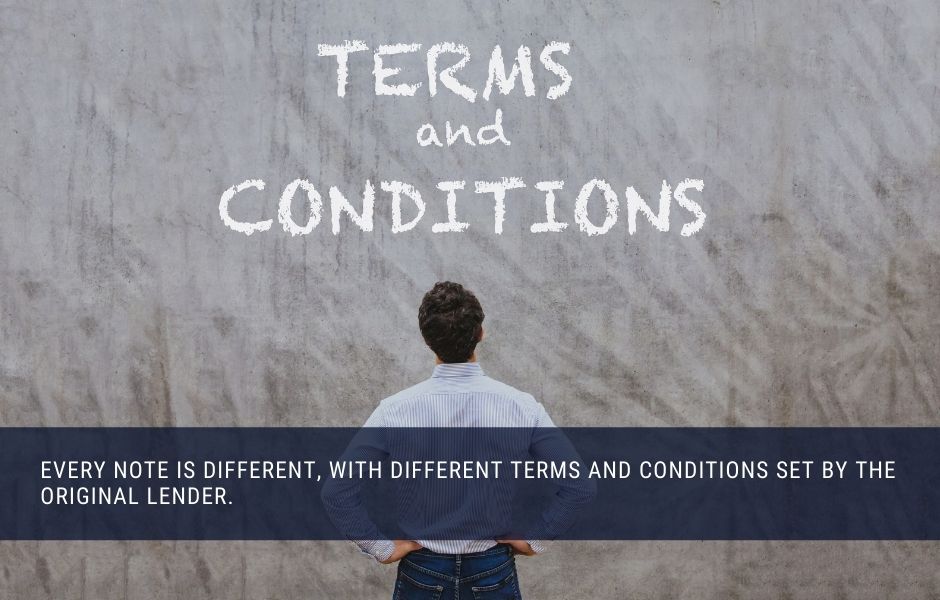
A particularly high interest rate, whilst seemingly attractive, might indicate a high risk borrower or collateral issues. be cautious about loans with interest rates above 10%.
Many of the terms within notes and deeds are State-specific, and it is important to know what your options and remedies are with late payments, defaults, and foreclosure. It is a good idea to have the note and mortgage or trust deed passed by an experienced creditors attorney if you are not familiar with the legal framework and jargon for that specific State.
Finally, assessing the payment history is your best way to assess the likely future performance of the borrower. Look for consistency from your borrower, and be wary of notes with lots of late payments.
Related: What is a Promissory Note and What Terms Should It Contain?
Market Risk
You may end up owning the real estate when you started out owning a note, or you might be relying on the sale of the real estate to recoup your investment. You do not want to end up with a property you cannot sell quickly for a reasonable price, so there are some important questions to ask…

How long does this type of property take to sell? What price to they typically sell for? What types of homes specifically are in demand locally? Do properties sell retail or wholesale? Most of this information is available online, or through a local realtor who can provide a Broker Price Opinion with a plenty of market analysis.
Related: Performing Notes – What? Why? and How to Buy
Other Risk Factors
Keeping in mind that individual investors have their own specific goals, objectives and circumstances, there are risks attached to any investment that are also specific to the investor. This might include investing out of State, tax implications, investing in a different currency, or the risk of tying up one’s capital for an extended period of time.
As with any investment, it is important to understand your own personal parameters in terms of risk and return when looking to invest in real estate notes. the golden rule in investing is; do not invest what you cannot afford to lose. That is why diversification is such an important component of risk-management.
So, there you have it, my headline analysis of the risks involved in investing in real estate notes. I hope you have found this article useful. If you want to see exclusive details of real estate notes for sale, you can subscribe to our weekly Priority Investor email here.
Some More Note Investing Articles
- Where to Buy Mortgage Notes – A Complete List of Verified Sources
- Note Investing 101 – Everything you Need to Know About Note Investing
- What is a Note and What Terms Should It Contain?
- Performing vs Non-Performing Notes – Which is the Better Investment?
- The Private Lender’s Guide to Assessing Credit Risk
- Understanding Lien Position and Priority
- How to Buy Mortgage Notes Online in 2021
- How to Assess Real Estate for note Investing and Private Lending
- Find Performing Notes for Sale in 2021
- Private Lending 101 – Everything you Need to Know About Private Money Lending
- Is Buying Mortgage Notes a Good Investment in 2021?
- Note Investing vs Rental Properties – Which is the Best Investment?
- Performing Notes – What Why and How to Buy
External Resources


